The conductor Mirga Gražinté-Tyla gave birth to a baby boy at the end of August.
The news has been kept private until now.
She will return to work in Birmingham in the middle of November.
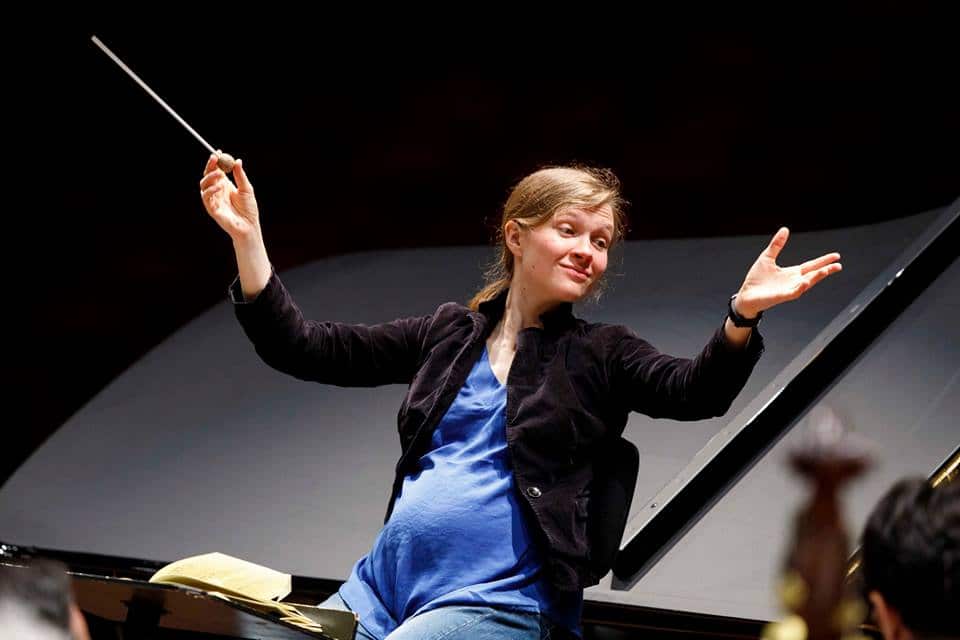
The conductor Mirga Gražinté-Tyla gave birth to a baby boy at the end of August.
The news has been kept private until now.
She will return to work in Birmingham in the middle of November.

Our social affairs correspondent reports that Ariane Matiakh, newly appointed GMD of Handel’s town Halle, today posted one word on her social media: Separated.
Ariane, 38, has been married to the baritone Thomas Oliemans.
We wish them both well.
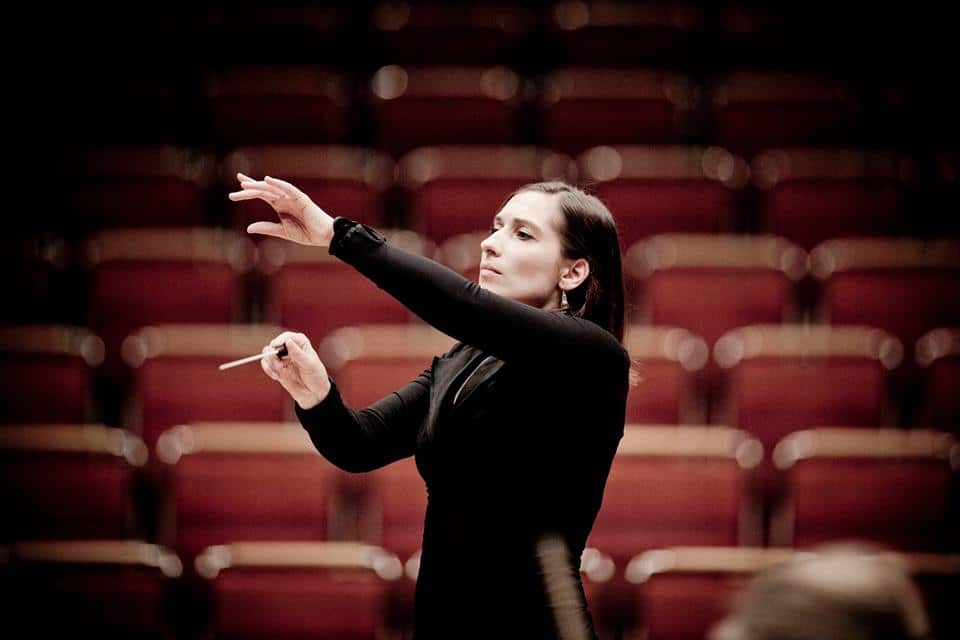
Aleksandra Kurzak has dropped out of tonight’s Traviata.
Ailyn Perez will make an unscheduled Paris debut.
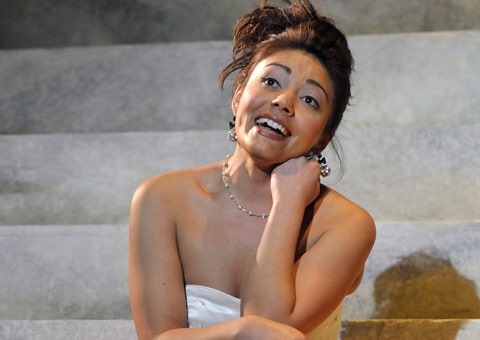
These Violettas get younger and younger.
The Teatro Liceu in Barcelona is about to advertise internationally for an artistic director.
Christina Scheppelmann, in charge since 2014, will finish in 2020. Her highlights have been Benvenuto Cellini directed by Terry Gilliam, Tristan und Isolde by Àlex Ollé (La Fura), and Andrea Chénier with Jonas Kaufmann, Sondra Radvanovsky and Carlos Álvarez.

The Canadian diva has said she will donate Sweden’s richly-endowed Rolf Schock prize to her mentoring organisation, Equilibrium Arts.
Past winners include György Ligeti, Jorma Panula, Kaija Saariaho, Anne Sofie von Otter, Gidon Kremer and Herbert Blomstedt.
From Barbara’s acceptance speech:
As a child, in the village of Waverley, Nova Scotia, music called me. My parents nurtured that little girl who loved to sing, taught me how to work consistently and with discipline, encouraged me to put in my hours of practise, meticulously scheduled, even when I didn’t feel inspired, and helped me to find the right teachers and mentors who would help me develop my skills.
More recently, conducting orchestras has taken a special place alongside singing. In both roles, I join my fellow musicians in resonating with what a composer has written, listening deeply to one another in service of the score, and witnessing and sharing that concentration of sound with those who are listening.
It has been especially rewarding to work with living composers. After 30 years of giving world premieres, I am very grateful to still be performing – at age 47, which is getting up there for a female opera singer. Yet I am little surprised to notice that I am one of the older singers in an opera production, instead of the youngest. I was chatting to a colleague a couple of years ago, remarking that we were resembled one another…and he said…YES! You look just like my mother! That was a wakeup call, and it confirmed that it might be time to add a new string to my bow. And before I knew it, I’d created a mentoring initiative for young professional musicians, which I decided to call Equilibrium.
Equilibrium exists to help young artists during the first substantial phase of their career, to help them establish their discipline and work ethic, so that amidst all the musical and non-musical challenges they are facing, their passion for music can stay at the core of their career.
Most musicians start training for their career as children, literally playing music, and they follow this dream with joy and abandonment. The line between music as extra-curricular activity into training to be a professional is blurred. And then suddenly, they find themselves in the first years of a career. Even coming to terms with the word professional, is daunting! Young artists are constantly facing a barrage of challenges: new colleagues, foreign cities and languages, choosing the right repertoire, dealing with the effects of travel and the loneliness of being on the road, being away from friends and family, the psychological effects of public criticism in the papers and on the internet. They are just trying to build up enough savings to pay their rent and their flight to the next audition, and subsequently dealing with rejection and disappointment, at the same time as their bank account is nearing empty. They are learning to manage their own time and balance their priorities, without the imposed schedule of a conservatory or opera school. Many are trying to find their way without an agent to help them decide which engagements they should accept, and under what terms. Many of these challenges will last a lifetime, but finding ways to deal with them at the beginning of a career can be especially tough and unsettling. For young artists to understand that the performers they look up to, the artists like me, old enough to be their mother or father, also had moments when we wanted to give up performing, periods of turmoil when we succumbed to pressure from others to compromise to the point of losing our balance, times of public triumph mixed with personal uncertainty and vice versa. When we take the time to mentor our younger colleagues and share with them the various various methods we have developed, (many of which actually work!), we help them to get through these tough times and back to the heart of what it is to be a musician.
This year Equilibrium is a team of 24 young musicians: 20 singers and 4 conductors. Handpicked from a field of over 350 applicants, this group of artists, (talented, disciplined, curious and courageous), hail from 12 countries worldwide, from Guadeloupe to Canada to Australia. Three are Swedish! Our work together is made up of intensive retreats and workshops, and public performances with top level orchestras in both Europe and North America. We will start this season a few kilometres north of here, with the generous participation of the Gothenburg Symphony Orchestra, performing Stravinsky’s masterpiece The Rake’s Progress, with me as conductor, and directed by Linus Fellbom.
I realize how important mentors have been in my own development, and remain to this day. There is only so much one can learn from googling…We need to connect with people, heart to heart! We need to tell stories to one another, and share and pass knowledge forward, using our voices.

The LA Phil, caught short by a late Daniel Harding cancellation, has had to change its programme and press assistant conductor Paolo Bortolameolli into service.
Paolo will conduct

It was announced this morning that Johannes Neubert will leave the Vienna Symphony Orchestra at the end of 2019.
Neubert, 49, will have served for eight years, over which time he has greatly boosted the orchestra’s global profile without busting its ever-fragile budget.
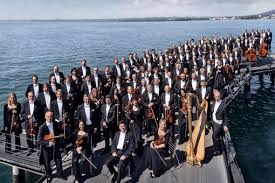
The St Louis Symphony posted good results last night. Audiences up, revenues and donations likewise.
Most striking was the endowment news. The irch has $223.2 million in the vaults, up five percent due to ‘significant donor contributions and earnings on investments.’
That’s St Louis, not a major city.
Why is it that major orchs in London, Paris, Berlin struggle to break $10 million in endowments?
It’s the best hedge against bad times ahead. But in Europe we still expect governments to bail us out.

There were calls this summer for Stefanie Carp to be dismissed as director of the Ruhr Triennale after she first sacked a band for proclaiming BDS views on Israel, then chickened out and reinstated it.
Carp has now been given a second year as director. But the board have insisted that she is accompanied at all times by a deputy with the power of veto over her decisions.
The Triennale, founded by Gerard Mortier, has degenerated into farce.
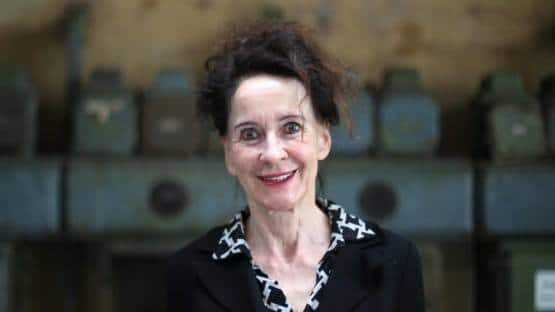
Madrid’s Teatro Real has replaced professional extras in its forthcoming Idomeneo with a call for volunteers, who nwill be making their stage debut.
The move has divided opinion. Many operagoers are privately thrilled to have the chance of a stage appearance. Professional actors fear this is the prelude to a further attack on seriousness in the arts.
They have posted a petition, calling for the Real’s artistic director and chief exec to be replaced by volunteers.
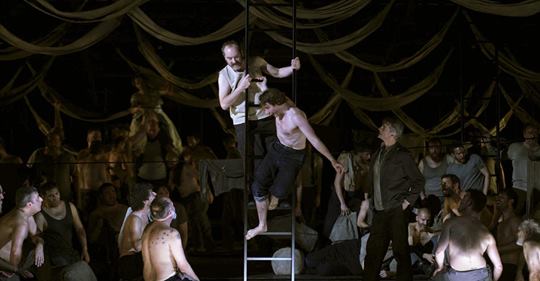
The small Swedish town of Jönköping is ablaze with controversy after a musician in the Jönköpings Sinfonietta was fired after an incident that took place during an internal meeting.
Afterwards, the operating manager of the Kulturhuset Spira said he was attacked by the musician, known as Magnus, and demanded his dismissal. Two days later Magnus was fired.
His supporters say there were 15 witnesses in the room, 12 of whom do not think he hit the boss.
A concert with Stefan Dohr was reduced in content due to low morale in the orchestra.
Hashtags with #where is Magnus? are flying around.
Here’s a local report.

UPDATE: Support rolls in from US musicians.